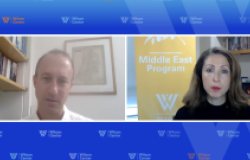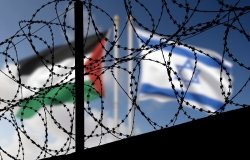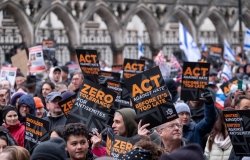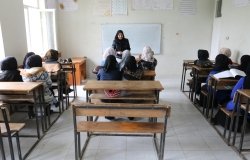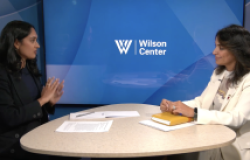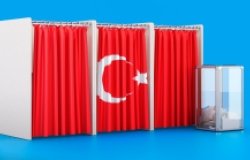The Truly Massive Challenges Facing Iran's New President
After the Aug. 4 inauguration, Rouhani will face a grueling test of the popularity he won at the polls against five other candidates, writes Robin Wright.
One of the most important questions in the Middle East this year is whether Hassan Rouhani's election will mark a new era -- both for Iranians and the outside world. The answer could mean the difference between peace and yet another war. Rouhani's campaign certainly made lots of promises. One of his most striking posters was a bright blue textograph of his face crafted from a slogan promising "a government of good sense and hope." The Scottish-educated cleric energized an election many Iranians had considered boycotting after pledging that "freedoms should be protected." He also won over key youth and female votes by vowing in televised debates to "minimize government interference" in culture and society and to give women "equal rights and equal pay."
The upbeat promises have continued apace since the June 14 election, particularly on Rouhani's two English and Farsi Twitter accounts. "This victory was a victory of wisdom, #moderation, progress, awareness, commitment and religiosity over extremism & bad behavior," @hassanrouhani tweeted on June 15. The "bad behavior" was clearly a dig at outgoing President Mahmoud Ahmadinejad, whose status has plummeted over the past year. He leaves office almost in disgrace.
Online, Rouhani even discreetly tipped his turban to the Great Satan. Four days after the vote, his account tweeted a decade-old picture of Rouhani visiting a U.S. field hospital set up after the devastating 2003 earthquake in historic Bam. He is pictured next to an American female medic.
Now Iran's new president has to deliver. After the Aug. 4 inauguration, Rouhani faces a grueling test of the popularity he won at the polls against five other candidates. Iran's economy is toxic. Political divisions border on schisms. Regional allies--both secular and Islamist--are literally under fire. And the outside world has threatened military action if Tehran does not compromise on its nuclear program. Rouhani will find few quick fixes either. His gentle smile will only get him so far.
About the Author

Robin Wright
Author and columnist for The New Yorker

Middle East Program
The Wilson Center’s Middle East Program serves as a crucial resource for the policymaking community and beyond, providing analyses and research that helps inform US foreign policymaking, stimulates public debate, and expands knowledge about issues in the wider Middle East and North Africa (MENA) region. Read more
